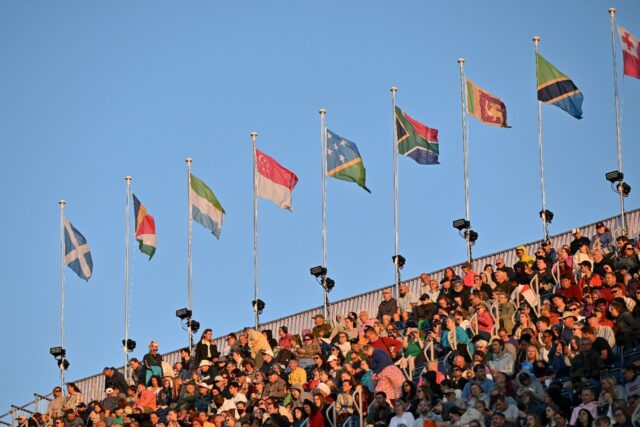Glasgow has been confirmed as the host city for the troubled 2026 Commonwealth Games, which will be a slimmed-down version of the multi-sport event.
The future of the 2026 Games was thrown into doubt when the Australian state of Victoria, the original hosts, withdrew last year, citing rising costs.
But the Scottish government effectively gave the green light to Glasgow last month and the Commonwealth Games Federation (CGF) announced on Tuesday that the 2014 hosts will stage the next Games, from July 23 to August 2, 2026.
The Games will feature just 10 sports compared with the 19 on show at the 2022 edition in the English city of Birmingham.
Para sport will once again be fully integrated as “a key priority and point of difference for the Games”, with six para sports included on the programme.
The schedule will feature athletics and para athletics, swimming and para swimming, artistic gymnastics, track cycling and para track cycling, netball, weightlifting and para powerlifting, boxing, judo, bowls and para bowls, as well as 3×3 basketball and 3×3 wheelchair basketball.
Among the sports missing out compared to the 2022 Games are triathlon, diving, hockey, T20 cricket, squash, badminton and rugby sevens.
Around 3,000 athletes are expected to compete from up to 74 Commonwealth nations and territories.
The CGF said Glasgow 2026 would deliver more than £100 million ($130 million) of inward investment into the city, with no need for public funding.
Australia will provide part of the finance after Victoria pulled out, citing a projected cost of more than A$6 billion ($4 billion).
“On behalf of the entire Commonwealth sport movement, we are delighted to officially confirm that the 2026 Commonwealth Games will take place in the host city of Glasgow,” said CGF chief executive Katie Sadleir.
‘Sustainable model’
Britain and Australia have staged five of the past six editions between them, but Sadleir believes a slimmed-down model will increase the potential pool of future hosts.
“The 2026 Games will be a bridge to the Commonwealth Games of tomorrow,” said Sadleir, adding Glasgow’s”sustainable model” would increase “the scope of countries capable of hosting”.
Commonwealth Games Scotland chairman Ian Reid said it had not been easy to decide which sports to include.
“I think everybody recognises that these events need to be more affordable, lighter and we would have loved to have all of our sports and all of our athletes competing but unfortunately it’s just not deliverable or affordable for this timeframe,” he told the BBC.
But Sadleir, speaking at an event in Glasgow on Tuesday, insisted sports dropped from the Glasgow schedule could return at subsequent Commonwealth Games.
“It’s always a very difficult decision when you have to decide which sports are in the programme and which sports are not,” she said.
“Every time we run a Games, we only have two compulsory sports, athletics and swimming, and the rest are all up for that discussion and negotiation between the host and the Commonwealth Games Federation.
“To the sports (missing out) it must be incredibly disappointing, but what I must say to you is that because you’re not in the programme for 2026 does not mean that you’re not a key sport for us in the future.”
The Commonwealth Games, held every four years, evolved out of the British Empire Games and is still made up mainly of countries and territories once subject to British imperial rule.

COMMENTS
Please let us know if you're having issues with commenting.